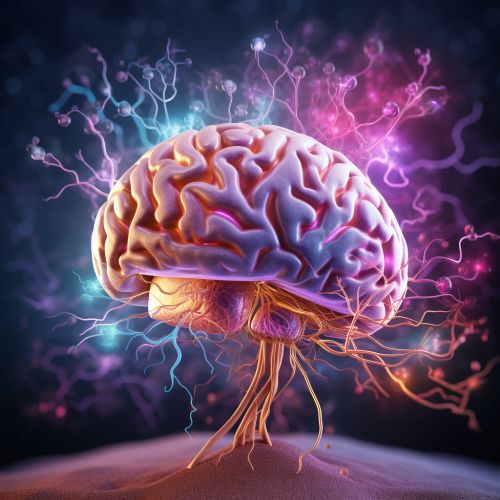Hormones and Depression
Introduction
Hormones are biochemical substances that function as signaling molecules in the body. They are produced by certain cells and travel to other cells to coordinate certain bodily functions. Depression, on the other hand, is a common and serious mental health disorder that negatively affects how a person feels, thinks, and acts. It causes feelings of sadness, loss of interest in activities, and a variety of physical and mental problems. The relationship between hormones and depression is complex and multifaceted, with various hormones playing different roles in the onset, progression, and treatment of depression.


Hormones and their Functions
Hormones are critical for the regulation of various bodily functions, including growth and development, metabolism, sexual function, reproduction, and mood. They are produced by the endocrine system, which includes glands such as the pituitary, thyroid, adrenals, pancreas, ovaries, and testes. Each hormone has a specific function and acts on certain cells, known as target cells. Hormones can have wide-ranging effects on the body, influencing the function of the immune system, the regulation of blood sugar levels, and the body's response to stress.
Hormonal Imbalance and Depression
A hormonal imbalance occurs when there is too much or too little of a hormone in the bloodstream. Because of their essential role in the body, even small hormonal imbalances can cause side effects throughout the body. Hormonal imbalances have been linked to a variety of health conditions, including depression. Several hormones have been implicated in depression, including cortisol, thyroid hormones, sex hormones, and melatonin.
Cortisol and Depression
Cortisol is a steroid hormone produced by the adrenal glands in response to stress. It is often referred to as the "stress hormone" because it helps the body respond to stress. However, prolonged exposure to high levels of cortisol can lead to a variety of health problems, including depression. Studies have shown that people with depression often have higher levels of cortisol in their blood. It is believed that high cortisol levels can affect the function of the brain, including the areas responsible for mood regulation.
Thyroid Hormones and Depression
The thyroid gland produces hormones that regulate the body's metabolism. These hormones, known as thyroxine (T4) and triiodothyronine (T3), also play a role in brain development and function. Research has shown that low levels of thyroid hormones, a condition known as hypothyroidism, can cause symptoms of depression. Conversely, high levels of thyroid hormones, or hyperthyroidism, can also lead to mood disorders, including depression.
Sex Hormones and Depression
Sex hormones, including estrogen in women and testosterone in men, also play a role in mood regulation. Changes in hormone levels throughout the menstrual cycle, pregnancy, postpartum period, and menopause can affect a woman's mood and are associated with mood disorders, including depression. Similarly, low testosterone levels in men have been linked to depression.
Melatonin and Depression
Melatonin is a hormone produced by the pineal gland in the brain. It regulates sleep-wake cycles and plays a role in mood regulation. Some studies have suggested that people with depression may have altered melatonin secretion patterns, which could contribute to the sleep disturbances often seen in depression.
Treatment of Depression with Hormonal Therapies
Given the link between hormones and depression, hormonal therapies have been explored as potential treatments for depression. These treatments aim to correct the underlying hormonal imbalances that may be contributing to depression.
Antidepressants and Hormones
Many antidepressants work by increasing the levels of certain chemicals in the brain, known as neurotransmitters, which help transmit signals between nerve cells. Some of these neurotransmitters, such as serotonin and norepinephrine, are also hormones. Therefore, antidepressants can indirectly affect hormone levels and function.
Hormone Replacement Therapy
Hormone replacement therapy (HRT) involves taking medications containing hormones to replace or supplement the body's natural hormones. HRT is often used to treat conditions caused by low hormone levels, such as menopausal symptoms in women. Some studies have suggested that HRT may also be effective in treating depression, particularly in women with menopausal depression.
Other Hormonal Treatments
Other hormonal treatments for depression include thyroid hormone therapy for people with hypothyroidism and testosterone therapy for men with low testosterone levels. However, these treatments are usually only effective in people who have an underlying hormonal imbalance.
Conclusion
The relationship between hormones and depression is complex and still not fully understood. However, it is clear that hormones play a significant role in mood regulation and that hormonal imbalances can contribute to depression. Further research is needed to fully understand the mechanisms by which hormones affect mood and to develop effective hormonal treatments for depression.
